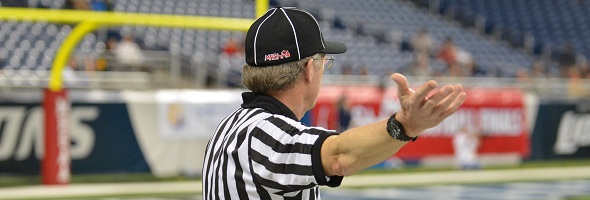
Be the Referee: Legacy Program
December 4, 2014
This week, MHSAA assistant director Mark Uyl dicusses the Legacy Program, which helps in the recruitment of officials from among current high school students.
"Be the Referee" is designed to help educate people on the rules of different sports, to help them better understand the art of officiating and to recruit officials. The segment can be heard on Mondays, Wednesdays and Fridays during the school year on The Drive With Jack Ebling on WVFN-AM, East Lansing.
Below is this week's segment - Legacy Program - Listen
Today we are going to talk about recruitment. Specifically the recruitment of new officials into the world of school sports.
One of the best ways for young people to get involved is through the MHSAA Legacy official program. This is open to any high school junior or senior who is interested in sports and officiating.
The Legacy official is paired with a Mentor official. That Mentor official is an established, veteran official for many years. The Legacy and Mentor official both go out and officiate together at the sub-varsity level, where that new person learns the rules, mechanics, coverages, and basically is learning the ropes of officiating from that Mentor official and getting them off on the right foot in the world of officiating.
Past editions
Nov. 26 - Sideline Management - Listen
Nov. 19 - 7-Person Mechanics - Listen
Nov. 12 - Blocking Below the Waist - Listen
Nov. 5 - Tournament Selection - Listen
Oct. 29 - Uncatchable Pass - Listen
Oct. 22 - Preparation for Officials - Listen
Oct. 15 - Automatic First Downs - Listen
Oct. 8 - Officials & Injuries - Listen
Oct. 1 - Overtime - Listen
Sept. 25 - Field Goals - Listen
Sept. 18 - Tackle Box - Listen
Sept. 11 - Pass Interference - Listen
Aug. 25 - Targeting - Listen

Supporting Sports Officials
February 20, 2015

